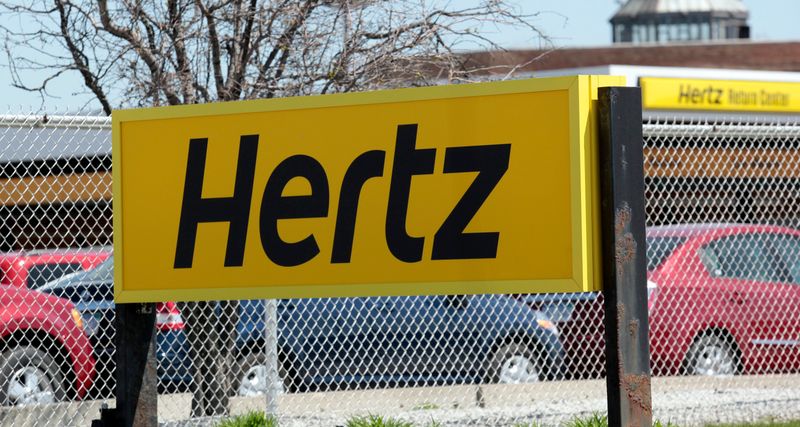Street Calls of the Week
On Monday, BofA Securities maintained its Underperform rating on Hertz Global shares (NASDAQ:HTZ), with a consistent price target of $2.70, significantly below the current trading price of $8.24. According to InvestingPro data, the stock appears overvalued based on Fair Value calculations, with concerning financial health metrics. The firm’s stance comes amidst considerations of the impact tariffs may have on the used vehicle market and the rental car industry as a whole.
BofA Securities notes that while there is potential for tariffs to drive used vehicle prices up, any increase may not be permanent. The firm anticipates that gains on auto assets from tariffs will be less than the 10% some have suggested. They also mention that the positive effects on auto asset values and fleet costs might be offset over time as Hertz purchases new vehicles at higher prices due to the tariffs. This concern is particularly significant given that InvestingPro data shows Hertz operates with a substantial debt burden of $18.4 billion and negative EBITDA of -$1.01 billion.
The firm also points out the risks that a 25% tariff on autos and auto parts could pose for rental car companies like Hertz. Increased maintenance costs and potential supply chain issues could lead to fleet utilization challenges if vehicles are left waiting for repairs.
BofA Securities also addressed the idea of Hertz partnering with UBER to roll out an autonomous vehicle (AV) fleet, as suggested by Bill Ackman. The firm believes that while there is an opportunity for rental car companies in AVs, such a development is more likely to materialize in the 2030s. UBER has indicated that the commercialization of AV technology will take a considerable amount of time.
Regarding Hertz’s financial strategy, BofA Securities suggests that the company’s greatest opportunity may lie in raising capital through equity issuance. Hertz is reported to be exploring ways to raise additional debt capital according to a Bloomberg article dated April 17, 2025. However, given Hertz’s already high leverage, BofA Securities believes that raising capital through equity to fund operations and reduce debt could potentially shift the company’s narrative in a more positive direction.
The firm concludes its assessment by reiterating the Underperform rating, citing high free cash flow usage, macroeconomic uncertainty, signs of declining travel demand, and the likelihood of Hertz losing market share as key factors behind their decision. InvestingPro analysis reveals concerning metrics, including negative free cash flow yield and earnings yield, with analysts forecasting continued losses for the upcoming year. For deeper insights into Hertz’s financial health and comprehensive analysis, investors can access the detailed Pro Research Report, available exclusively to InvestingPro subscribers.
In other recent news, Hertz Global Holdings (OTC:HTZGQ) Inc. disclosed a new stake by Pershing Square Capital Management, which purchased 12.7 million shares valued at approximately $46.5 million. This development represents a significant investment in the company and has drawn considerable attention from investors. Meanwhile, Hertz is dealing with a data breach involving a vendor’s platform, which may have exposed sensitive customer and employee information. The company has taken steps to address the breach, including notifying law enforcement and offering identity monitoring services to affected individuals.
Additionally, Hertz is exploring options for its capital structure amid a legal dispute with bondholders concerning a make-whole payout exceeding $300 million. The company has enlisted the help of Ducera Partners and Davis Polk & Wardwell to navigate this situation. In another strategic move, Hertz entered into a voting agreement with its largest shareholder, CK Amarillo LP, which owns 58.9% of the company’s common stock. This agreement will influence how CK Amarillo votes its shares.
The car rental industry, including Hertz, has also seen a boost in the perceived value of their vehicle fleets following a 25% tariff on auto imports. This tariff is expected to make used vehicles more attractive, potentially benefiting Hertz and other companies with large fleets. These recent developments highlight the various challenges and opportunities facing Hertz as it navigates the current market environment.
This article was generated with the support of AI and reviewed by an editor. For more information see our T&C.
